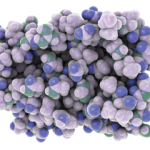Susan Bartlett, PhD, clinical psychologist, behavioral epidemiologist and professor of medicine at McGill University, Montreal, Canada, and joint professor of medicine at Johns Hopkins Medicine, Baltimore, and associate editor of The Rheumatologist, said fatigue could be related to living with a rheumatic disease and the exhaustion that comes from dealing with the medical system, insurance and medications.
She also cited as a factor the uncertainty of living with a disease in which one day you may feel fine and then—out of the blue—comes a flare and having then to deal with that. She noted that RA often occurs in the prime of life for most women and deadens joy.
“Patients say time after time, I can deal with the pain. It’s the fatigue that really does me in,” Dr. Bartlett said. “The psychological piece that comes with fatigue is just enormous.”
Effective Treatments
The panel discussed a range of treatments for fatigue, including such psychological approaches as cognitive behavioral therapy, diet and nutrition, supplements and physical activity.
Cheryl Crow, an occupational therapist who has lived with RA for over 20 years and founder of Arthritis Life, emphasized that fatigue does not occur in a vacuum. She likened managing symptoms of rheumatic diseases to playing whack-a-mole—one symptom will come up, and you manage it; another symptom comes up, and you manage it; and on and on.
Such a characterization illustrates the interrelatedness of the symptoms of rheumatic diseases, including fatigue and other symptoms, such as cognitive dysfunction (e.g., brain fog) and psychological issues (e.g., depression and/or anxiety). The good news: When fatigue gets a little better, other symptoms get better, said Ms. Crow. However, when the fatigue gets worse, other symptoms get worse.
Ms. Crow encourages patients to be “a detective of their own body, 24/7” to learn and understand their own body and patterns as a way to manage the uncertainty of a disease and not get too overwhelmed. Also, she pointed to the first comprehensive nonpharmacologic evidence-based guideline by EULAR on fatigue in musculoskeletal conditions.1
Of the nonpharmacologic recommendations, exercise and comprehensive psychosocial management are the top two. Ms. Crow advocates breaking down exercise recommendations into four pillars (i.e., strength training, cardiovascular, stretching and balance) and referring patients to a physical or occupational therapist for guidance. A caution: If you just tell patients to exercise, it is too overwhelming. Ms. Crow also provided anecdotal personal experience with strength training, saying that she was shocked at the improvements in fatigue and cognition she experienced after just two days.
